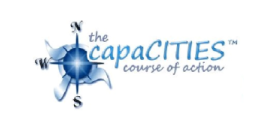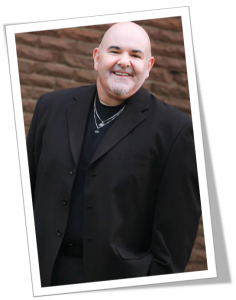Last week, we introduced The Study of Character Leadership, Part 1. We invite you to refresh here and now. Then upon doing so, let’s dig in some more.
now. Then upon doing so, let’s dig in some more.
In the Ivey School post referenced, in Part 1, it was noted:
“In assessing leaders at any level in an organization, we must always ask three questions:
- Do they have the competencies to be a leader? Do they have the knowledge, the understanding of key concepts, facts, and relationships that they need to do the job effectively?
- Do they have the commitment to be a leader? Yes, they aspire to be a leader, but are they prepared to do the hard work of leadership, engage with others in fulfilling the organizational mission, achieve the vision and deliver on the goals?
- Do they have the character to be a good leader and strive to be an even better one? Do they have the values, traits and virtues that others – shareholders, employees, customers, suppliers, regulators and the broader society within which they operate – will use to determine if they are good leaders?”
This third element or question conjures up a memory of a sage piece of advice given to me my one Peter Johnson in 1997. On a trip to New York to meet senior management with Dale Carnegie & Associates, Inc. on July 1, 1997, I was picked up at the hotel by Peter. It was my first time meeting him, and he extended his hand to greet. Upon doing so he said, “Can I give you a piece of advice?” I, in turn, said “Absolutely”. Then, he said it…
“People like doing business with people they like doing business with.”
It struck me. It reminded me of growing up amidst the work of my father in the construction industry. It reminded me of my own body of work and experience up to that point… and now since; the lessons learned. The wisdom was and is palpable; and it speaks to the third element above.
Do they have the character to be a good leader and strive to be an even better one? Do they have the values, traits and virtues that others – shareholders, employees, customers, suppliers, regulators and the broader society within which they operate – will use to determine if they are good leaders?”
In pondering the value of character, consider that “trustworthiness is the chief means of attracting  confirmation and prosperity”. Then consider how you build that. Do you have the character to be a good leader and strive to be an even better one? Do you have the values, traits and virtues that others – shareholders, employees, customers, suppliers, regulators and the broader society within which they operate – will use to determine if you are a good leader? Indeed, do you practice the strengths of character that will invoke Peter’s wisdom?
confirmation and prosperity”. Then consider how you build that. Do you have the character to be a good leader and strive to be an even better one? Do you have the values, traits and virtues that others – shareholders, employees, customers, suppliers, regulators and the broader society within which they operate – will use to determine if you are a good leader? Indeed, do you practice the strengths of character that will invoke Peter’s wisdom?
Then, consider variations on the questions from the last post.
- On a scale of 1-5, how important is character leadership in building trustworthiness?
- On a scale of 1-5, where are you with this right now?
- What would advance the needle on the previous question?
- What are 3 practices you could engage to build it?
- What would be the impact of doing so?
Set a Trustworthiness Plan in Place.
In getting where you need and desire to go with this. how would responsibility and reliability factor in to the equation? What about consistency of experience and excellence? Where would fun and enjoyment play a part? Think about your shareholders, employees, customers, suppliers, regulators and the broader society. Indeed, create a personal Trustworthiness Mission Statement.
I serve (my colleagues, customers, clients and constituents) by earning their trust every day through (and name three ways you do that).
For example…
I serve my colleagues, customers, clients and all constituents by earning their trust every day through:
- Honesty, honor and timeliness in my responses
- Excellence and reliability in the quality of my work
- Joyfulness and enjoyment in conducting our business.
Most importantly, use language that you know you are prepared and committed to honoring every day. Every Day. EVERY. DAY. Then set some clear and measurable actions that you will take daily to make it so. Trustworthiness is indeed the “means of attracting confirmation and prosperity”.
In taking on this work, you might want to consider the body of work of Joe Calloway who speaks and writes to consistency and excellence. You might want to read this recent LINKEDIN post I shared.
With all of that in mind, and set in motion, the results will lead to more…
Peace, passion and prosperity.
Barry Lewis Green, aka The Unity Guy™
Barry is ultimately a strength coach. His work is about exploring, identifying, practicing and  mastering our strengths and building upon them through practical and powerful unity and resourcefulness. That is why Barry is The Unity Guy™. EPIC Engage™ is an extension of The Unity Guy™. The Epic work is all about building strong, united and inspired cultures lead by character… at school, work and community; where everyone matters and contributes everyday.
mastering our strengths and building upon them through practical and powerful unity and resourcefulness. That is why Barry is The Unity Guy™. EPIC Engage™ is an extension of The Unity Guy™. The Epic work is all about building strong, united and inspired cultures lead by character… at school, work and community; where everyone matters and contributes everyday.
PS
Here is a post on asking better questions that might be useful too.
PPS
Our work is all about character. We go beyond behaviour to help build character driven, united, and resourceful organizations and communities around the globe. As part of that work, we offer you …
our FREE buffet of services here.
,
